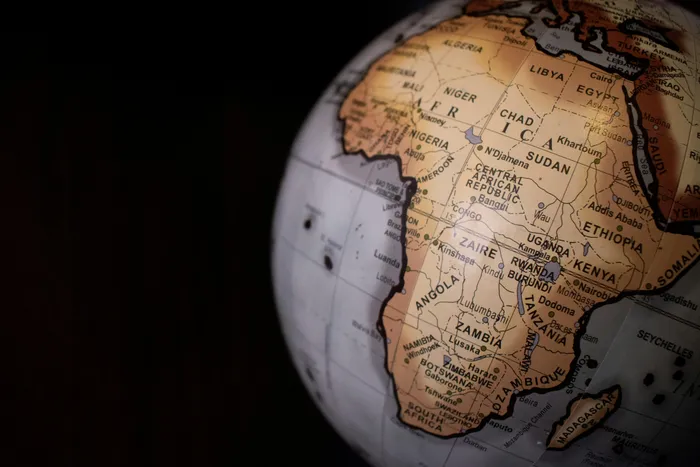The African Continental Free Trade Area: a game-changer for the financial sector

Global intra-regional trade figures show Africa at roughly 16% - a stark contrast to Europe (65%) and Asia (43%).
Image: James Wiseman/Unsplash
Global intra-regional trade figures show Africa at roughly 16% - a stark contrast to Europe (65%) and Asia (43%). The African Continental Free Trade Area (AfCFTA) aims to address this disparity by establishing a unified market. For banking and financial institutions considering investing in Africa's future, this is a pivotal moment to engage in the continent's economic transformation.
The AfCFTA encompasses 54 countries and 1.3 billion people. By 2035, intra-African trade will exceed $140 billion (R2.5 trillion), representing 15% of the continent's exports. With full implementation, these exports could reach $952bn – a 29% increase. These aren't mere statistics; they represent real opportunities for businesses.
The AfCFTA investment protocol's holistic approach requires abolishing tariffs, introducing regulatory conformity, open cross-border transactions, and protecting investments and intellectual property while ensuring investor obligations. Such an investment climate will facilitate the free flow of capital and attract Foreign Direct Investment (FDI).
Designed to use "Deep Trade Agreements" (DTAs) encompassing additional policy areas - free movement of goods, services, capital, people, and intellectual property - the vision aims for a broader and deeper economically integrated trade bloc.
The challenge is turning this potential into reality. Recent research and our experience in African markets indicate four key areas needing attention: infrastructure investment, digital innovation, SME empowerment, and energy.
Infrastructure development remains a critical hurdle. The continent needs significant investment in transportation, energy, and digital networks. The financial sector can address this by uniting government initiatives and private-sector capital. In South Africa, banks leverage the country's capacity for long-term local currency finance to support infrastructure projects and work with development finance institutions to increase funding for these investments.
Digital innovation has led to substantial investment in modernising cross-border payments and developing blockchain documentation systems to reduce processing times. These innovations are crucial in markets like Kenya, where digital lending platforms enable SMEs to get rapid approvals when upgrading their infrastructure.
Focusing on SMEs is crucial as they are the backbone of African economies yet struggle to access traditional trade finance. This is being addressed through innovative solutions like supply chain finance and specialised trade finance products that reduce working capital requirements.
Banks are addressing the $19bn SME financing gap by providing access to invoice-based financing and creating an online marketplace connecting verified customers with pre-screened suppliers. These platforms demonstrate how digital solutions can democratise access to finance and develop new opportunities.
In South Africa, trade compliance and digital adoption workshops are helping SMEs navigate new market opportunities. In Cote d'Ivoire, banks have developed specialised financing solutions for the agricultural sector. These programs combine financial support with capacity building, creating a sustainable foundation for business growth.
The final pillar is renewable and sustainable energy. The AfCFTA principles emphasise that economic development should be environmentally and socially responsible. Investment in sustainable energy infrastructure is crucial for enabling trade and promoting a greener future. By focusing on ESG-compliant projects in renewable energy and agriculture, we can ensure inclusive and sustainable growth. This approach goes beyond traditional banking.
Current policy discussions with governments and regulators are shaping a better environment for trade and investment. The impact of these initiatives is visible. Digital supply chain finance solutions are reducing costs and processing times for smaller businesses. Reports suggest increased adoption could boost exports of Egypt, Ghana, Kenya, Nigeria, and South Africa by $34bn by 2035. This growth potential is significant as the AfCFTA pushes the continent toward value-added industries and away from reliance on primary commodities.
The future of African trade is being written now, and it's a story of integration, innovation, and inclusive growth. The AfCFTA represents more than a trade agreement: it is a platform for technological advancement, economic resilience, and food security. The agreement's success will depend on our ability to embrace digital innovation, support SMEs, and facilitate strategic investments.
A combination of financial expertise, digital innovation, and strategic partnerships are helping turn the AfCFTA's social vision into an economic reality.

Chris Egberink is CEO & head of banking and coverage in SA for Standard Chartered.
Image: Supplied
Chris Egberink is CEO & head of banking and coverage in SA for Standard Chartered.
BUSINESS REPORT